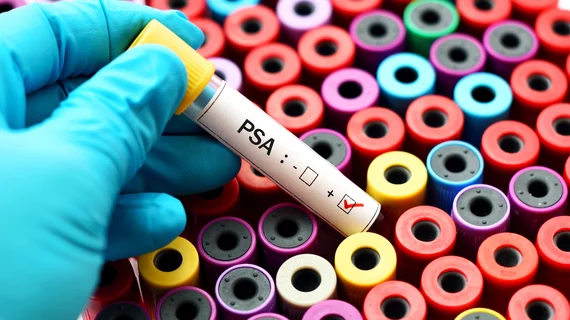68Ga-PSMA-11 PET has positive impact on prostate cancer patients
The PET radiotracer 68Ga-PSMA-11 improved the detection of biochemically recurrent prostate cancer, according to results of a prospective trial published in JAMA Oncology.
“Treatment of patients with biochemically recurrent prostate cancer is guided by disease location and extent,” wrote first author Wolfgang P. Fendler, MD, of the University of California, Los Angeles (UCLA), and colleagues. “Major guidelines recommend computed tomography (CT), magnetic resonance imaging (MRI), and/or bone scintigraphy at biochemical recurrence. However, these guidelines acknowledge limited sensitivity at low prostate-specific antigen (PSA) levels.”
And while 68Ga-PSMA-11 PET has been studied in many retrospective trials and on a compassionate use basis, there is little prospective evidence on the radiotracer.
In this multicenter, single-arm trial, 635 patients with biochemically recurrent prostate cancer underwent 68Ga-PSMA-11 PET. The cohort was broken down into 262 post-prostatectomy patients, 169 who underwent radiation therapy and 204 patients who experienced both.
Using three blind readers and independent lesion validation, on a per-patient basis positive predictive value was 0.84 and 0.92 by the composite reference standard. The PET tracer localized cancer in 75% of patients and that rate “significantly increased” with prostate-specific antigen (PSA), reaching 97% when PSA was greater than 5 ng/mL.
The radiotracer also appeared to be safe for patients, with no serious events reported.
“Prospective proof of accuracy of a new diagnostic test is prerequisite for approval and reimbursement,” Fendler and colleagues noted. “This prospective multicenter trial demonstrates high accuracy, reproducibility, and safety of 68Ga-PSMA-11 PET in patients with biochemically recurrent prostate cancer.”

